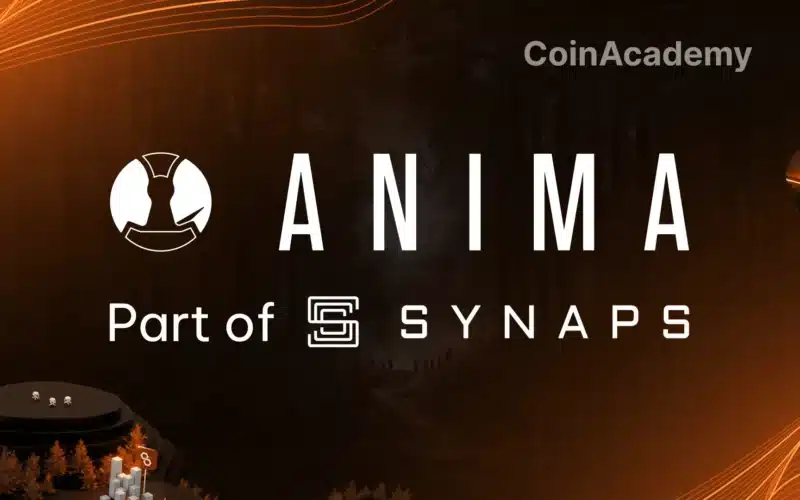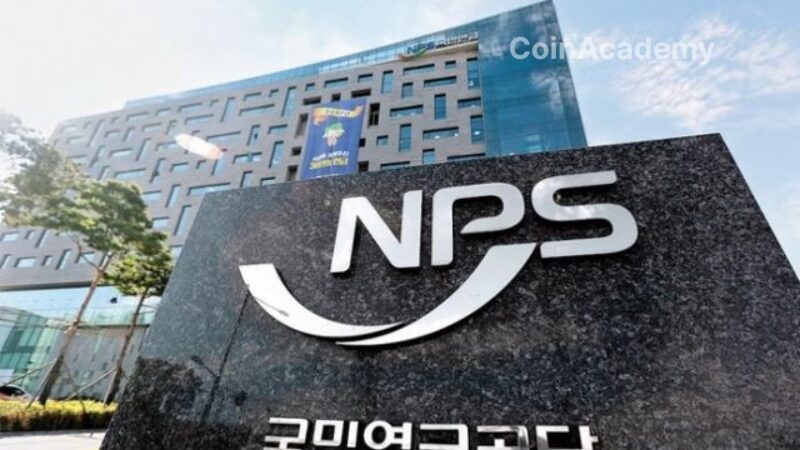|
Getting your Trinity Audio player ready...
|
Crypto without bots, do you think it’s possible? A Web3 where every user is unique yet anonymous, where interactions are authentic, and where bots and Sybil attacks no longer distort metrics or harvest your airdrops.
This is the vision Anima aims to achieve with its innovative Proof of Personhood (PoP) technology, and in this article, we’ll explore how it’s done.
In this article, we explore how Anima intends to build a new user-centric model within Web3, paving the way for mass adoption and fairer engagement.
What is PoP? How does it work? That’s what you’ll discover throughout this article 👇
This article is brought to you in collaboration with Anima
Beyond capital: towards a Web3 resilient to Sybil attacks
Since its inception, blockchain has relied on capital-based consensus mechanisms, such as Proof of Work (PoW) or Proof of Stake (PoS). These systems played a crucial role in the emergence and development of Web3, providing a robust method for securing decentralized networks. They solved the problem of untrusted reliability, ensuring the validity of transactions and the security of the network.
Thanks to them, blockchain has been able to guarantee the pseudonymity of contributors while maintaining effective resistance to Sybil attacks, reliability and true decentralization. These mechanisms have been the pillar on which numerous innovations and decentralized applications have been built, shaping the ecosystem we know today.
However, they often favor players with significant financial resources, which can limit the inclusivity and commitment of users with less economic power.
Sybil attacks, where an individual or group creates multiple identities to manipulate a network, represent a major threat to the crypto ecosystem. The absence of a reliable method, apart from the use of capital, to prove that a user is unique is holding back the development of new, more user-centric applications.

Anima offers an alternative: a user-centric system that coexists with current capital-based models. By introducing Proof of Personhood (PoP), Anima aims to establish a paradigm where each unique user can interact fairly with the protocols, paving the way for applications based on the principle “1 user = 1 vote” or “1 user = 1 reward”.
This new model could be the catalyst for the next wave of mass crypto adoption, making the ecosystem more inclusive, equitable and human-centric.
In search of a native identity for a fairer Web3
Identity in Web3 is a complex and often controversial subject. Current decentralized identity solutions (dID) are multiple, fragmented and lack universality. This creates an ecosystem where users can use different solutions on different wallets, making it difficult to build effective resistance to Sybil attacks.
Models based on social proof often require a great deal of time and effort on the part of new entrants before being validated, which is not scalable on a large scale. Other solutions require the use of technologies that are not accessible on a day-to-day basis for most users.
What’s more, many of today’s solutions allow an individual to pass verification through another person, opening the door to large-scale cheating. There is even a black market in crypto identity, where users pay to bypass verification systems.

Solutions based on sensitive identity information (passport, surname, first name, age, nationality) are often the result of demands from outside the market, notably regulatory. Admittedly, they meet compliance requirements (KYC, AML). They help solve the problem of Sybil attacks, but seem excessive for certain Web3 use cases outside compliance, and do not preserve contributors’ anonymity.
To create a fairer ecosystem that is resilient to Sybil attacks, it is essential to have an identity native to Web3, preserving confidentiality and based on Proof of Personhood (PoP). This identity must focus on two pillars:
- Resistance to Sybil attacks: proving that every user is human and unique.
- On-chain reputation: building a history of trust based on the user’s interactions and contributions to the crypto ecosystem.
The concrete benefits of such an identity are numerous:
Airdrops and quests: fairer distribution of rewards, ensuring that they benefit real, committed users rather than networks of bots or fake accounts. Airdrops can thus target active, authentic users, reinforcing their sense of belonging and commitment. Community quests, meanwhile, encourage real, qualitative participation, ensuring a healthy dynamic within the community.
Governance: implementation of fair voting systems such as “quadratic voting” or the “1 person = 1 vote” principle, avoiding the concentration of power in the hands of large token holders.
DeFi: development of alternatives to over-collateralized loans, enabling users to benefit from financial services based on their reputation and history.
Engagement in decentralized social networks (DeSo): obtaining reliable engagement metrics without the influence of bots, fair remuneration of content creators based on actual engagement.
GameFi: promoting fair play and equity in blockchain games, ensuring that rewards are distributed to real, unique players.
A native, universal identity focused on resistance to Sybil attacks is therefore the key to a more inclusive, fair and user-centric Web3.
The Anima protocol: building a bots-free Web3 with Proof of Personhood
Anima is working to create a fair, user-centric crypto space by fighting Sybil attacks with their Proof of Personhood (PoP) technology. They champion authentic user contribution and reward through a privacy-preserving reputation system.
Proof of Personhood (PoP):
Anima’s Proof of Personhood (PoP) enables users to verify their uniqueness and prove that they are human, while preserving their anonymity.
To achieve this, Anima uses an innovative technology based on FaceGraph: a non-reversible vector representation of the user’s facial features. After a facial scan, the biometric data is immediately transformed into a FaceGraph, making it impossible to trace the real face from this graph.
This method ensures that each user is unique, without the need to collect or store sensitive data. Users validated by PoP are called Real Active Users (RAU), forming a community of authentic, verified users.
Reputation NFT:
Once a user’s authenticity has been confirmed via PoP, he or she has the option of minting a Reputation NFT for a cost of $1. This NFT, based on Soulbound Tokens technology, serves as on-chain proof that the wallet is held by a unique human.
Reputation NFT offers several advantages:
- Increasing levels of trust: users can increase the level of their Reputation NFT by completing a new PoP challenge every two weeks. The higher the level, the greater the confidence that the wallet is held by a single human.
- Multi-chain: Reputation NFT can be mined on several blockchains, including BNB Chain, Polygon, Base, Linea, Optimism, Arbitrum, Scroll and others. This allows users to gain exposure to different ecosystems. A mint on each chain costs $1, with discounts for mints on multiple chains simultaneously.
- Reputation maintenance: if a user is inactive for more than a month, their Real Active User status will be deactivated in the NFT metadata, encouraging continued engagement.
How can you get the Reputation NFT ?
The process is simple:
- PoP Challenge: the user completes the PoP challenge on Anima’s platform, proving that he or she is human and unique.
- Mint of Reputation NFT: after verification, the user can mine Reputation NFT for $1 per chain, on the blockchains of their choice.
- Level-up: every two weeks, users can complete a new PoP challenge to increase the level of their NFT, thereby strengthening their reputation.
Users can access the official Anima app to obtain their Reputation NFT by visiting app.anima.io.
On-chain Reputation : engaging the community through quests:
Anima will soon evolve into a quest platform dedicated to Reputation NFTs holders. Scheduled for early 2025, this platform will offer on-chain and off-chain quests, created by Anima and its partners.
How will it work?
Access reserved for verified users: only Reputation NFT holders will be able to participate in quests, guaranteeing authentic, bot-free engagement.
Varied quests: users will be able to complete specific missions, interact with partner projects and actively contribute to the crypto ecosystem.
Dedicated rewards: by completing quests, users can earn exclusive rewards, boosting their reputation and engagement.
On-chain reputation building: every interaction and quest success will be recorded, enabling users to build a history of trust and credibility within the community.
This platform aims to promote real, high-quality engagement, by valuing unique and authentic user contributions. It also offers partner projects the opportunity to address a verified and engaged audience, optimizing their marketing and community initiatives.
Creating a bots-free Web3 thanks to Anima’s sponsorship program
Anima firmly believes in the power of community to build a bots-free, user-centric Web3. To encourage this dynamic, Anima has set up a sponsorship program enabling users to share their commitment with those around them.
How can you get involved?
Invite your friends and family: share your referral link on https://app.anima.io/profile?tab=referral with your friends, family and contacts.
Earn rewards: for every referral who completes the PoP challenge and mint a Reputation NFT, you’ll receive exclusive rewards.
Contribute to a fairer Web3: by participating in the program, you help to expand the community of Real Active Users, strengthening resistance to Sybil attacks and promoting a healthier ecosystem.
This program is an opportunity for every user to become a key player in building a fair, transparent and people-centric Web3.
Key facts
Anima has positioned itself as a major player in the construction of a more user-centric Web3. By introducing Proof of Personhood (PoP) and Reputation NFTs, Anima offers an innovative solution to combat Sybil attacks, preserve user pseudonymity and promote authentic interaction within the crypto ecosystem.
Thanks to its unique approach, Anima makes it possible to:
- Reduce the influence of bots and fraudsters: by verifying the uniqueness and humanity of users, Anima ensures that interactions and metrics are reliable.
- Promote genuine engagement: Reputation NFTs and the quest platform encourage active, authentic user participation.
- Opening up new perspectives: by offering an identity native to Web3, Anima facilitates the development of more inclusive, equitable and user-centric applications.
It will be exciting to follow Anima’s evolution over the coming months, as the project continues to innovate and strengthen its ecosystem. Whether you’re a user, a developer or a crypto project, Anima offers unique opportunities to take part in building a fairer, more resilient Web3.
Follow Anima on the networks
👾 Discord
This article is brought to you in collaboration with Anima.




